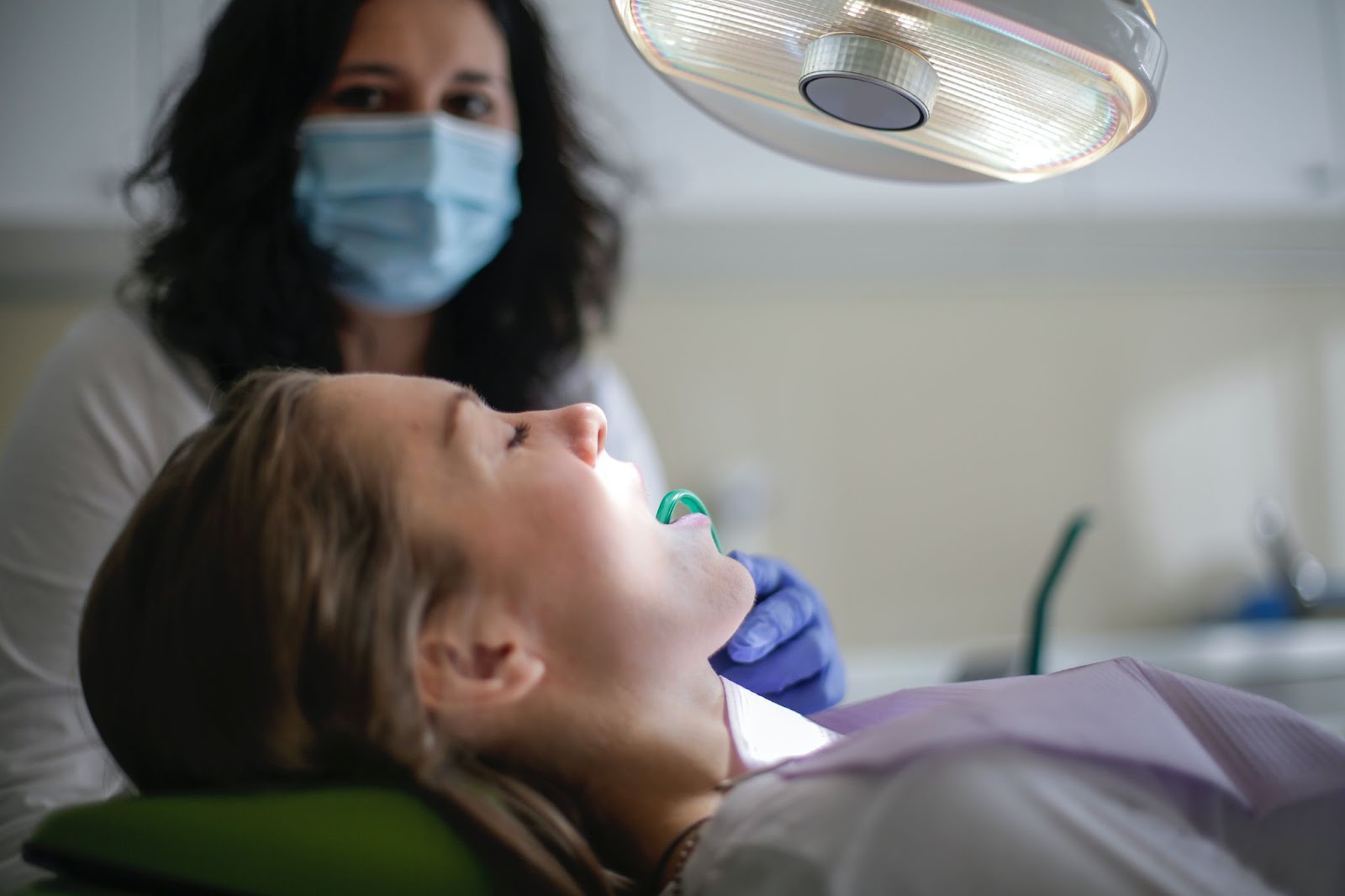What Are The Warning Signs Of Oral Cancer?

Anyone can have oral cancer, but smoking or chewing tobacco puts a person at a heightened risk. Regardless of tobacco use or age, everyone should get a routine dental examination every six months. During your exam, the dentist will evaluate your oral health and check for the common warning signs of oral cancer, including lumps and swelling.
To follow is a closer look at the warning signs of oral cancer and an overview of the most common causes and risk factors. We’ll also offer a summary of preventative measures you can take to help protect your health.
The Warning Signs of Oral Cancer
Depending on the severity of oral cancer, a patient may show some or many of the following warning signs. If you notice any of these symptoms, you should get a check-up immediately because early detection is crucial to protecting your health.
Swelling in Your Neck
Oral cancer can occur in various locations around the mouth and throat, which can lead to swelling in your neck. Depending on the severity of this swelling, it may or may not be visibly noticeable to you. A lump may accompany the swelling.
A Lump in Your Cheek
The cheek is a common location for oral cancer, so you should not ignore a lump in your cheek. Cancerous lumps are often painless, causing patients to assume they are harmless. In cases of oral cancer, you may also experience an ulcer in your cheek or mouth that does not heal or continues to reoccur. All of these represent legitimate warning signs of oral cancer that need to be examined more closely.
Difficulty Chewing or Swallowing
Trouble chewing or swallowing could be a symptom of many serious conditions, and oral cancer tops the list. If you find it difficult to chew or swallow, you should tell your doctor or dentist. Similarly, coughing up food or drink while eating is another warning sign of oral cancer.
Feeling Like Something Is Stuck in Your Throat
The sensation that something is stuck in your throat could signify swelling or the presence of an out-of-sight lump. In any case, this sensation should be addressed by a healthcare practitioner so they can check for other warning signs of oral cancer.
Trouble Moving Jaw or Tongue
Difficulty moving your jaw or tongue is another warning sign that you should not ignore. This trouble may or may not be accompanied by swelling, numbness, or tingling. If you’re experiencing any of these signs, you should ask your healthcare practitioner right away.
Unexpected Weight Loss
Unexpected weight loss is often the first noticeable symptom of certain cancers, including those impacting the esophagus, lung, and stomach. If you have lost weight without explanation, even if you are not underweight, you should schedule an examination and speak with your healthcare practitioner about the change.
Constant Bad Breath
Severe or persistent bad breath could be a sign of oral cancer, but it is also caused by tooth decay and infections. In any case, if you are suffering from bad breath that continues to return after brushing and flossing, it’s worth a thorough evaluation by a dental professional. Bad breath is a sign of poor oral health, even if it is not cancer-related.
What Are the Causes and Risk Factors?
Cancer is difficult to predict because it can affect anyone. While certain risk factors increase the likelihood that an individual will suffer from a given type of cancer, even a person with no identified risk factors could experience it.
For oral cancer, the most significant risk factors are the following:
- Tobacco use through smoking or chewing.
- Alcohol use, especially excessive consumption.
- An HPV infection.
- Excess body weight, especially obesity.
- Exposure to ultraviolet (UV) light.
- Poor nutrition, especially a lack of fruit and vegetables.
- Certain genetic conditions, especially Fanconi anemia.
Older individuals are also at a higher risk of contracting oral cancer, and men are about twice as likely as women to suffer from it. Whether you are in a high-risk category or not, you should routinely be examined for the warning signs of oral cancer because early detection is crucial to longevity.
What Can You Do To Prevent Oral Cancer?
While there is no way to completely prevent cancer from occurring, there are certain risk factors that you can control, such as weight and nutrition. With that in mind, the best way to prevent oral cancer is to eat a healthy diet consisting of fruit and vegetables. Oral health also plays a role, which is why you should brush and floss regularly.
Managing weight is also crucial for those seeking to reduce the risk of contracting oral cancer. Getting and staying within a healthy weight range for your age, height, and body type will reduce your risk of getting oral cancer and other diseases.
Because prevention isn’t entirely possible, it’s also important to routinely attend dental check-ups to make sure any warning signs of oral cancer are detected early, giving an individual the best possible chance to make a swift recovery.
Summary
There are many warning signs of oral cancer, including swelling, lumps, and numbness in the mouth and throat. By eating a nutrient-rich diet, watching your weight, and staying on top of your oral hygiene, you can help reduce your risk of contracting oral cancer. Lastly, by attending a regular check-up every six months, you can detect any warning signs early on, giving you the best chance at staying healthy.
When was the last time your oral health was evaluated by a professional? If it’s been more than six months since your last check-up, give us a call today to schedule an examination with our caring team.



